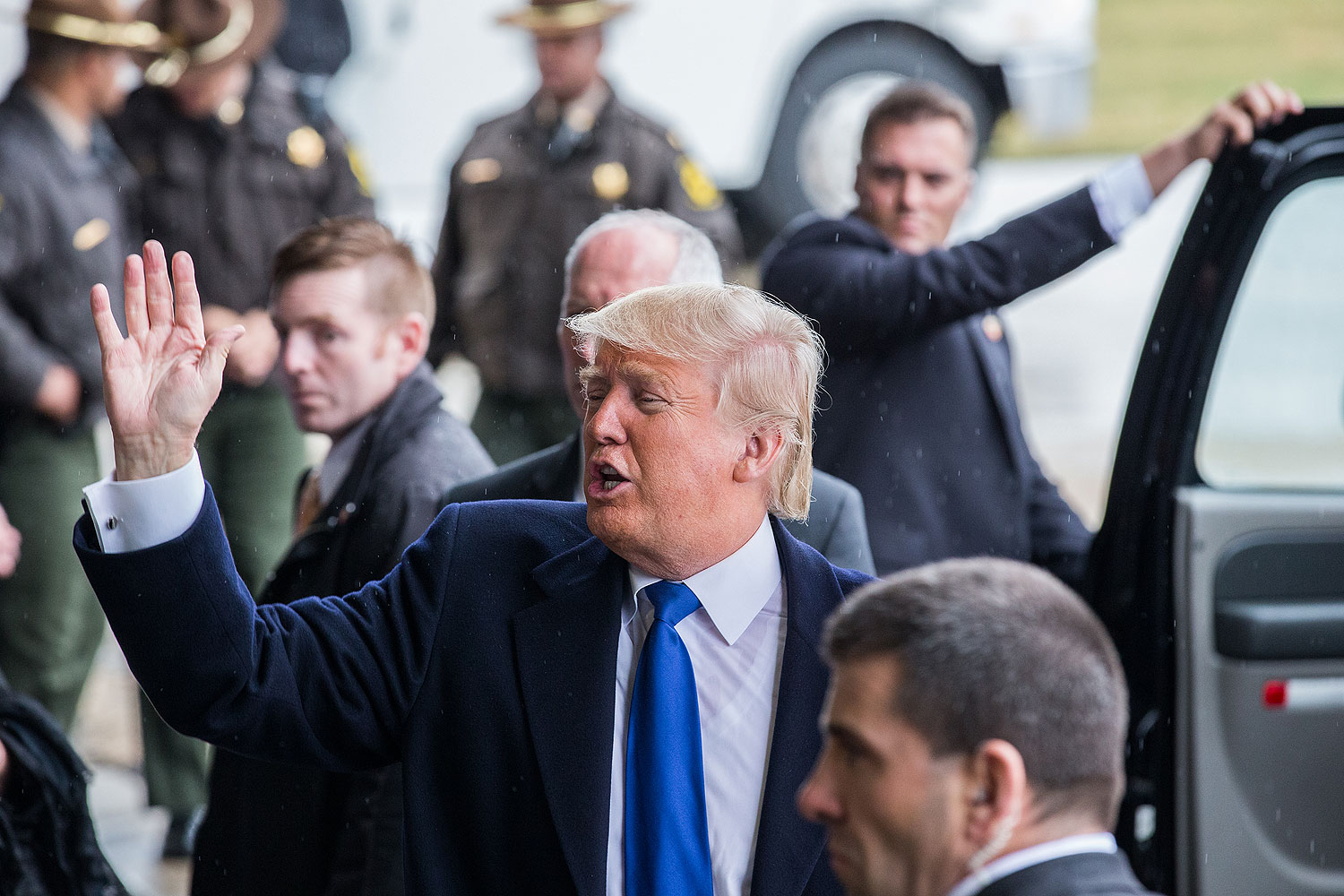By now you have probably noticed that the President of the United States put Chicago on watch.
If Chicago doesn't fix the horrible "carnage" going on, 228 shootings in 2017 with 42 killings (up 24% from 2016), I will send in the Feds!
— Donald J. Trump (@realDonaldTrump) January 25, 2017
"Send in the Feds," reasonably or not, was immediately interpreted as a threat to deploy the National Guard to Chicago as local leaders tried to figure out what he was talking about.
Trump is probably unaware that calling in the National Guard to quell violence in Chicago is a near-constant refrain: Bruce Rauner addressed and rejected the idea last year; retired Army lieutenant general Russel Honore floated the idea in 2014; Pat Quinn did not reject the idea in 2013; John Fritchey and LaShawn Ford called for it in 2010; Blago considered it in 2008. So it's common, bipartisan, and not limited to law-and-order types, though there's certainly more gravity when it's intimated by POTUS.
Anyway, Trump's spokesman, Sean Spicer, immediately clarified/walked back/interpreted Trump's tweet yesterday, and some sense of calm returned:
Asked during the press briefing to clarify the nature of the federal help that Trump has in mind, Spicer said what Trump “wants to do is provide the resources of the federal government,” which can “span a bunch of things.”
“It can be aid if it was requested up through the governor, through the proper channels … on a law enforcement basis,” Spicer said. “There’s other aid that can be requested as well, through the US attorney’s office that will ensure that the people of Chicago will feel safe.”
So: a normal process, not necessarily the National Guard, and not necessarily limited to law enforcement. The city can breathe a bit easier… except for the sanctuary city threat, but there's reason not to panic about that as well.
Why was the president suggesting—accidentally or not—unilateral action in the city? That might be the more important part of the story.
Buzzfeed's Brandon Wall (formerly of the Sun-Times) noticed that, shortly beforehand, Fox News's The O'Reilly Factor had brought up the same statistics and used the exact word "carnage." This is likely not a coincidence. This morning CNN's senior media correspondent, Brian Stelter, noticed that fourteen minutes after a Fox News chyron described Chelsea Manning as an "ungrateful traitor," Trump used the exact same phrase. It's in keeping with his immense TV news diet:
Most mornings, Trump flicks on the TV and watches "Morning Joe," often for long periods of time, sometimes interrupted with texts to the hosts or panelists. After the 6 a.m. hour of "Joe," he's often on to "Fox & Friends" by 7 a.m., with a little CNN before or after. He also catches the Sunday shows, especially "Meet the Press." "The shows," as he calls them, often provoke his tweets. The day of our interview with him, all of his tweet topics were discussed during the first two hours of "Morning Joe."
He begins and ends his day "with plenty of television." So much so that a source told Politico that aides have to reduce his consumption: "He gets bored and likes to watch TV, this person said, so it is important to minimize that."
Much has been made of what the media's role in a Trump administration will be. Currently, he's handed a lot of it to a handful of cable television news shows, and the rest of the media will have to adjust to what results.




